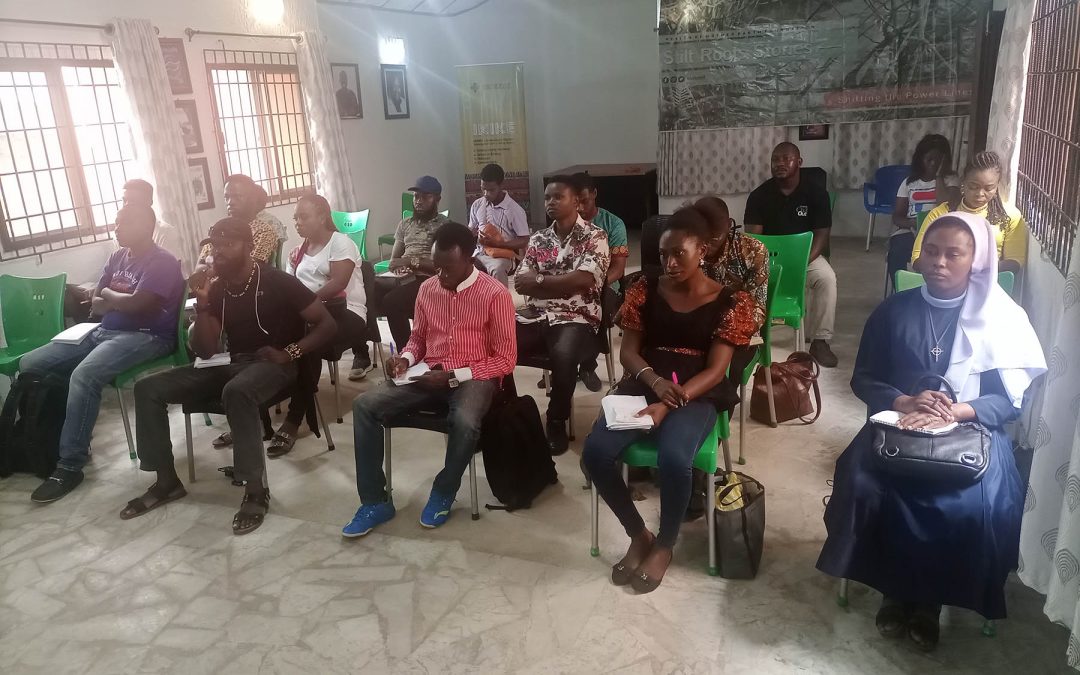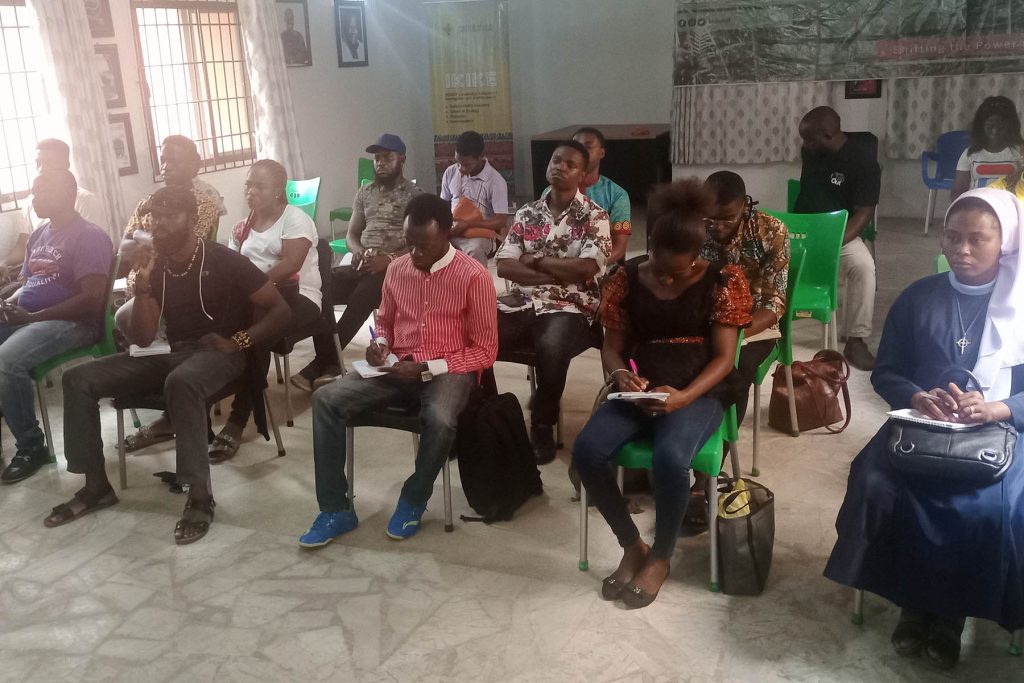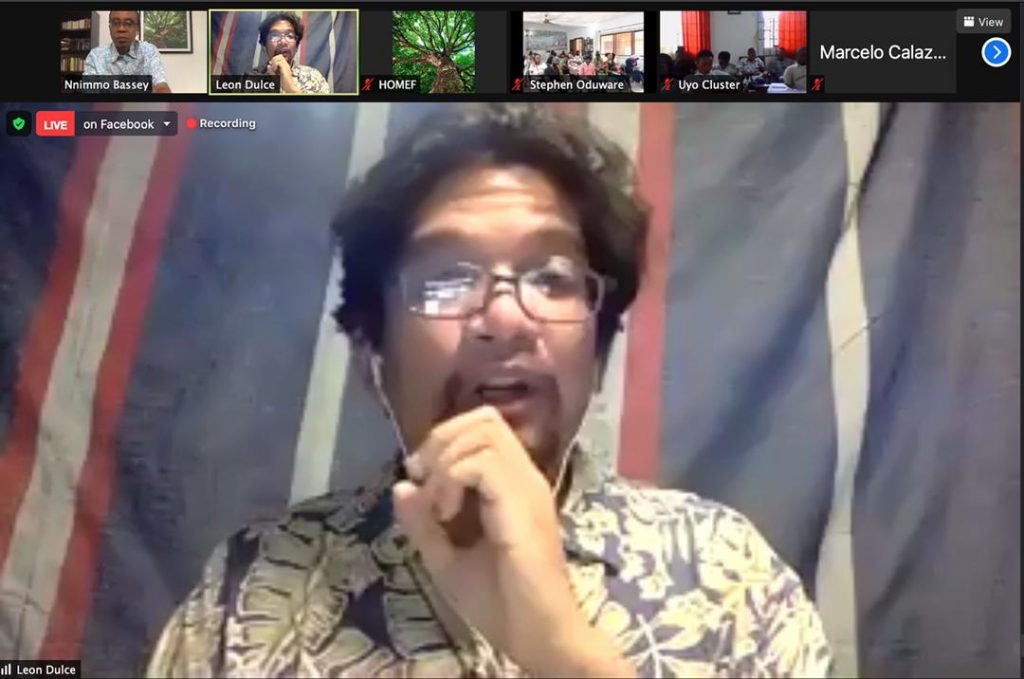Stop the harm on Mother Earth.
The need to protect the environment, ensure livelihoods and ensure energy access cannot be over emphasized because of our high gains from the environment and all it carries. Health of Mother Earth foundation HOMEF, in a two-day session of School of Ecology looked at critical ways of protecting the environment, building power from the grassroots, and ensuring a shift from fossil fuel-based energy to renewable alternatives.
As the world shifts from fossil fuels to renewable energy sources, the Africa should not be left behind. The Executive Director of HOMEF, Dr Nnimmo Bassey in his address noted that the idea of shifting the power line is a project that looks at who decides what energy options should be adopted and who has access to the energy options.
Using the mangrove ecosystems as a foundation for the conversation, he stressed the fact that they provide breeding grounds for fishes, are excellent for shoreline protection and support livelihood as well as cultural expressions. At the start of the project, HOMEF in partnership with CEHRD had carried out a participatory research in Kono and Bundu, two fishing communities in Rivers State. The contrast between the two communities is that while Kono has preserved mangrove forest, the mangroves at Bundu have been largely destroyed by oil pollution, plastic wastes and over harvesting of the wood. The communities illustrated the urgent need for the meeting of energy needs of our coastal communities.
“Looking at the fast-disappearing mangroves in various parts of the Niger Delta and other parts of the world, we see a trend that deprives people of access to energy, access to ecosystems that support local livelihoods and help to mitigate the impacts of climate change.”
With speakers Nigeria, Ghana, Bolivia, Brazil, South Africa, Swaziland, Philippines, and the United Kingdom broad recommendations could be picked from the various submissions on the need for bottom-up policy making pathways. They all decried unjust power relations and the entrenching of domination, inequality, oppression, racism, and neo-colonialism.
Dr Nnimmo Bassey noted that “There is need for sustainable change from the people, when an issue has been identified, it should be escalated to national and global level because what affects the grassroots in Nigeria, also affects others in other part of the world. There is to also need to share solutions and build movement to ensure that the best things get adopted and put in place, also to analysis and get to the root of the problems, a lot of the problems in the environment are due to faulty power relations.”
A leading earth jurisprudence expert and attorney form South Africa, Cormac Cullinan in his presentation noted that our responses to ecological challenges are moderated by our world views. He noted that the current economic models promote degradation of nature and that we should build a healthy relationship with nature and the other species.
The need to campaign for a better environment is for everybody in the environment space to continue to support the livelihood, culture and to live in dignity. We all have a space to contribute and be part of the movement to contribute to a greener environment.
Asad Rehman, executive director of the United Kingdom based War on Want insisted that for there to be a just energy transition there must be a readiness of nations to act, agree to fighting for a temperature rise of not more than 1.5 degrees Celsius above pre-industrial levels and to actively work to undo embedded systems of oppression in the world.
Thuli Makama of Oil Change International (Africa) spoke on the need to uproot the false power and development narratives that has used to open Africa for exploitation. She decried the fact that while the world is shifting away from fossil fuel extraction, international oil companies are aggressively seeking new oil fields in Africa. She added that while extraction of resources in Africa are mostly geared for export, our people merely end up with low-paying hazardous jobs.
Earlier there were reports on the Stilt Roots stories and reports on the Shifting Power Lines project from Latin America and Asia. The report from Latin America was presented by Marcelo Calazans of Oilwatch Latin America. He spoke alongside fishers and activists from Brazil, Colombia, and Argentina. They all spoke on the destruction of mangrove ecosystems and challenges posed by fossil fuel extraction. They reported on the resistance of the people to these negative actions and demanded a new way of looking at energy and how to meet such needs.
Speaking on the situation in Southeast Asia were Enteng Bautista of Advocates of Science and Technology for the People and Dulce Leon of Kalikasan Peoples Network. The spoke, among other things, of the destruction of mangroves and the livelihoods of fisherfolks in the Manila Bay – mostly to allow for land reclamation and big infrastructure including a proposed airport complex. They informed the session that they were also working towards a People’s Green Deal which will require that polluters pay for the energy transition.
For Pablo Solon, the former ambassador of Bolivia to the United Nations, although struggles that will succeed must have a strong base from the grassroots, they must also have strong national mobilizations. He added that the just transition must not be a mere change of energy mode but one that holistically look at various aspects of life that ensures well-being of both people and the planet.








